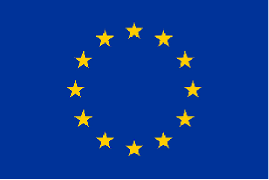


Plastic products and plastic packaging play an important role in maintaining hygiene in gastronomy, as they protect food, ensure food safety and improve shelf life. However, both the production and disposal of plastic and single-use packaging require resources and have a negative impact on the environment. At the same time, worldwide regulations regarding Single Use Plastics (SUP’s) are increasing. That is why we are supporting our HoReCa customers to use alternatives and dispose of plastics properly. Businesses can generate costs from not managing plastic waste properly. But by doing things differently restaurants can show their customers that they care about the environment and wellbeing of their communities


We must act now: the pollution of our oceans from plastic waste has reached dramatic proportions. Even today, a truckload of plastic waste on average ends up in the ocean every minute. If you can picture this, then it should be clear to you that we must act immediately! With your gastronomy business, you can make an important contribution to sustainable development, because your business is closely tied to people and the environment. You may notice plastic waste floating around your local environment and this is something that consumers and the younger generation are no longer tolerating.

There are many ways of reducing plastic. The gastronomy sector has many reusable, recyclable and compostable alternatives. National laws on mandatory reuse systems for gastronomy are coming into effect, for example in Germany or France. This means that the HoReCa sector will soon have a future without single-use plastics. When you want to tackle your plastic waste, it helps to know what the different sources of plastics are, how they are used, how to dispose them and what the available alternatives are.

A simple waste audit will show you what plastics you have and where you could focus your plastic reduction actions.
Check out some examples that will guide you:

Delivery Wrapping

Food Packaging

Water Bottles

Takeaway Packaging

Gloves, Masks
| Product |  Delivery Wrapping
Delivery Wrapping |
 Food Packaging
Food Packaging |
 Water Bottles
Water Bottles |
 Takeaway Packaging
Takeaway Packaging |
 Gloves, Masks
Gloves, Masks |
| What is the packaging? | PVC / PVDC | Plastic PET, rPET | Plastic PET, rPET | Bowls - PET | Vinyl, latex, polyester |
| What is the material? | Plastic from crude oil with additives | Plastic from crude oil | Plastic from crude oil | Plastic from crude oil | Plastic from crude oil, extracted rubber |
| How should it be disposed? | General waste | Depends on the content. Some can be separated into the recycle bin others not | Recycle bin | Recycle bin or general waste (if food residues) | General waste |
| How much do you have? | kg / month | kg / month | kg / month | kg / month | kg / month |
| Have you thought of this? | It takes space in your waste bin which you might pay for. Ask your supplier to take the waste back during delivery. | Ask your supplier to deliver with a reusable trolley wrap. Ask your supplier for alternatives, less or simpler packaging that can be easily cleaned and separated. | Check with your supplier to do a returnable deposit for crates of plastic. This will cut the plastic wrapping and bottles that you have to dispose of. | Customers might not want extra plastic to fill their rubbish bins. Since 2021, in Europe, plastic disposables are no longer allowed by law. Ask your supplier for alternatives. | Talk to your suppliers about what alternatives they have. This is a difficult issue particularly in times of pandemics and there are not many solutions currently. |
| Is there an alternative? | Ask your supplier to deliver with a usable trolley wrap. | Non crude oil based plastics. | Tap water when safe. Filtered / treated tap water in house when not safe. Glass bottles - also with deposit scheme. | Compostable bagasse, bamboo containers. Container deposit schemes. | Cotton masks, Plastic screens instead of masks. |
It is produced from chlorine and can have a negative impact on the environment and human health. PVDC disposal through incineration is problematic as it generates a similar quantity of dioxins as PVC.
It contains substances called phthalates, which are added to the PVC to make it flexible but these chemicals and dioxins leach into the environment through incineration. Their potential negative impact on human health is a concern and is not fully understood. In addition, PVC is also difficult to recycle. Today less than 1% of PVC is recycled and this is problematic for future recycling targets in Europe. Look at the packaging on products you purchase – try to avoid packaging with the recycling logo number 3 which is a sign for PVC and favour packaging where “PVC free” is communicated.
It has very low recycling rates today, as it is 95% air so it is not cost-effective to collect, store or ship. While it is technically possible to recycle, recycled EPS is often contaminated with additives and therefore not suitable for food packaging. As a result, very few regions around the world collect EPS as part of the recyclables stream. It may break into small pieces, even minuscule pieces which are harder to clean up.

Since 2021, many single-use plastic items have been banned in the EU. Be aware of the new regulations and find solutions for avoiding plastic waste ahead of time that suit you best.

Plastic that is used only once (disposable) will generally come into your business as containers from delivery such as trolleys and pallets wrapped in plastic film, plastic-wrapped food and drink, containers for takeaway, plastic wrap for use in the kitchen and hygiene items such as gloves.

47% of METRO’s HoReCa customers (globally) want to buy products with more eco-friendly packaging (Metro ́s 2019 global sustainability study).

Many start-ups and scientists are working on new solutions for single-use plastic. It will be only a matter of time before they come to the market and you would be able to make an impact by implementing these new innovative packaging and product solutions. Keep asking your suppliers what they are doing to rethink your current plastic use practices
As a restaurateur, there are many ways to reduce plastic waste in your restaurant
Once you have managed to implement first steps to reduce your plastic use you can consider investing in more advanced ways to prevent plastic:
Ask your local authority to install plastic disposal and collection services where there are none
Your wholesaler can give you information on what can be purchased in bulk, for example, detergents, oils and dry ingredients
like flour
Ask them what they are doing to improve their packaging and if they have a collection scheme or a recycling station at their premises. Talk with your fellow gastronomers about what you are doing and ask them to jointly work together to lobby for change
To collect your hard-to-recycle waste you can join recycling programmes, such as TerraCycle
Ask your suppliers for products in refillable, reusable containers, for example, the LOOP scheme
Once you have managed to implement first steps to reduce your plastic use you can consider investing in more advanced ways to prevent plastic:
Your wholesaler can give you information on what can be purchased in bulk, for example, detergents, oils and dry ingredients
like flour
To collect your hard-to-recycle waste you can join recycling programmes, such as TerraCycle

Ask your local authority to install plastic disposal and collection services where there are none
Ask them what they are doing to improve their packaging and if they have a collection scheme or a recycling station at their premises. Talk with your fellow gastronomers about what you are doing and ask them to jointly work together to lobby for change
Ask your suppliers for products in refillable, reusable containers, for example, the LOOP scheme
Analyse your plastic consumption
Take action to reduce plastic waste by implementing some simple or even advanced ways
Inform and engage your staff
Talk to your suppliers and wholesaler for more information
Tell your customers about your progress
Where possible and subject to hygiene regulations, avoid plastic film by using reusable containers or wax wraps.
You can avoid single use plastic, encourage customers to bring their own containers for takeaway and purchase products that are packaged more sustainably.
Reflect if you really need to use some items or if they are there because of habit. Therefore, consider not serving straws unless guests specifically ask for them.
Encourage your customers to bring their own containers for takeaway food and drinks and consider giving an incentive like a discount. Ensure that hygiene rules are in place, for example, filling a food container or coffee cup away from the food preparation area.
Before you give your customers cutlery (knife, fork, spoon, stirrer, or chopsticks) with their takeaway ask them if they actually want it.
To reduce plastic, use returnable deposit packaging wherever possible, for example, glass water bottles or plastic crates instead of plastic wrap as returnable plastic carrier packaging.
Your local wholesaler provides plastic collection and disposal services that you should use so that plastic can be properly recycled.
Water fill up schemes put your restaurants on the map for registered uses for people to come and fill up their bottles for free. You do not only show your social awareness, but you also concretely prevent more plastic from being consumed because consumers will not need to buy water in plastic bottles. Moreover, this can also be a way to generate new customers.
Buy products that are packaged sustainably. This means simple packaging without PVC, PVDC and EPS. This might also lower your disposal costs.
The use of plastic is closely linked to habits. Therefore, it is essential to communicate the necessity and the benefit of using less plastic to your staff. Involve them in regular updates and briefings on your plastic use policy, place posters in easy-to-see places to remind them of new habits, and let them know that input from each one is needed and appreciated.